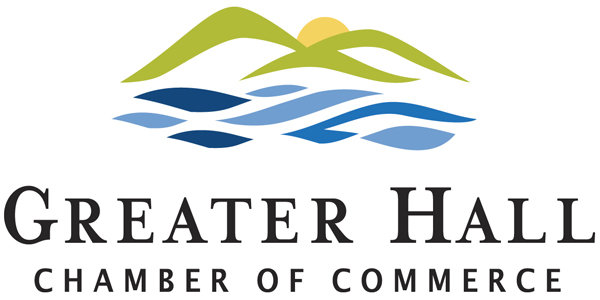Chamber retail marketing strategy encourages buying locally
Family back-to-school shopping can have a positive impact on retail businesses and supports local infrastructure and education funding. Due to the declining state revenues, Georgian’s will not get a back-to-school sales tax holiday this summer. “Buying from local retailers has a positive impact on revenues for schools and infrastructure projects in Gainesville-Hall County,” said Dick Valentine, United Community Bank, Chief Executive Officer/Hall County, and Chairman of the Chamber’s Retail Initiative. “It also has a direct impact on local retail businesses and can help the community attract other retail businesses.”
The Chamber’s retail initiative has adapted to current market conditions to better meet the goals of supporting our existing retail and attracting complimentary and specialty retail businesses that are not currently in place in Gainesville-Hall County. Overall goals for the retail strategy include enhancing quality of life for residents, increasing sales tax revenue (LOST and SPLOST), branding the Gainesville-Hall County community as a complete regional center for North Georgia, adding jobs and investment, and improving the ability for citizens to buy products locally.
“With the help of our key partners, we’ve refined our efforts to support existing retailers and focus on adding complimentary retailers that make Hall County a better retail destination for our own citizens and those that live throughout the Northeast Georgia region,” said Valentine.
According to statistics compiled by the University of Georgia, Gainesville-Hall County is under-retailed in general merchandise, clothing, furniture, appliances, specialty retailers and restaurants. The community’s population growth has outpaced the growth in these retail categories. Last year, Gainesville-Hall County was the 3rd Fastest Growing Metropolitan Area in the US. “Many people that might otherwise shop in Hall County are bypassing us for retail destinations with a broader selection,” said Tim Evans, Chamber Vice President of Economic Development. “This represents lost sales tax opportunities.”
The University of Georgia measures a community’s ability to attract retail with a ratio appropriately named “pull-factor,” and it measures a community’s per capital retail sales versus the average per capital retail sales for the state. A pull-factor greater than one indicates a community is pulling retail sales in from other areas. A pull-factor of less than one indicates a community is losing retail sales to other areas. According to UGA’s statistical abstract, Hall County has a pull factor of 1.01. Gwinnett County’s pull factor is 1.13. By comparison, Dawson County, home to North Georgia Premium Outlets, has a pull factor of 1.59.
Proof that the sector in Gainesville is turning around is the addition of two new stores on the corner of Dawsonville Highway and McEver Road. Michael’s, an arts and crafts chain store, as well as Ulta, a cosmetics and fragrance franchise are scheduled to open this fall. Michael’s will occupy 22,231 square feet while Ulta is planned for a 10,012 square-foot space. The Greater Hall Chamber worked with the developer and coordinated efforts with the City and local utility providers to encourage the project.
Also recently announced, The Children’s Place, a leading children’s specialty apparel retailer, opened in July at Village Shoppes of Gainesville, and Irish Bred, a new store-front restaurant, is now open at Lakeshore Mall. The Greater Hall Chamber was instrumental in assisting these developments as well.
Gainesville-Hall County has all right pieces to be a regional center. “Northeast Georgia’s major transportation corridors converge in Hall County connecting the region’s growing population to the community. We’re already a regional center for jobs, medical services and professional services. Retail is just the next step,” noted Valentine. “The 14-county region of Northeast Georgia can sustain a much larger retail base than a community of 200,000 can do on its own.”
Encouraging Hall County citizens to buy local is just one way the Chamber seeks to support the existing retail base. The Chamber, with its partners at the UGA Small Business Development Center, has expanded its small business programs, seminars and workshops to support entrepreneurs and the small business owner.
